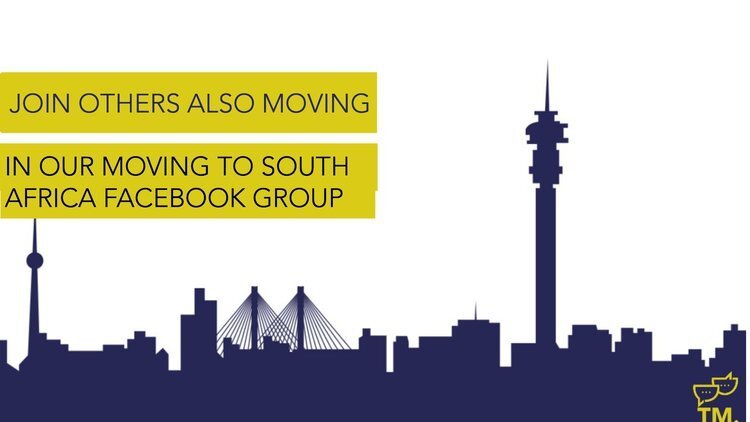Health Care Options in South Africa
/South Africa has some of the most well-trained doctors and medical professionals in the world, but unfortunately, while you’ll definitely find adequate care in many private facilities, most public healthcare in the country is unfortunately understaffed and under-resourced.
This means that you’ll need to set up a healthcare investment such as medical aid or a hospital plan to make use of private, and more expensive, medical facilities.
In general, medical aid schemes offer three kinds of plans:
Comprehensive: These plans cover all medical expenses, including routine visits to a health professional.
Network: A network plan is more affordable, but will mean that you can only make use of certain medical service providers which are part of the scheme’s network, which will require research on your part, to make sure that you can be reimbursed.
Hospital Plans: These plans generally cover only medical emergencies and planned hospital visits/procedures, and it’s advisable to take out an additional gap cover policy to make up for the potential shortfall between what your medical aid will cover and the actual cost.
Some professional industries offer their own medical aid packages, for example ProfMed for professionals with certain qualification criteria, GEMS for government employees and CAMAF for Chartered Accounts. Depending on what industry you work in, there may be a particular medical scheme that would work better for you, but this will be a matter of research and finding out what’s available to you specifically.
TOP HEALTHCARE PACKAGES:
While local packages might be more affordable, there are global health plan options for expats who move regularly, and travel frequently, some of the global programmes are run in conjunction with a local company:
BUPA Global Health Insurance
CIGNA Coverage in Africa
LOCAL OPTIONS
DISCOVERY: One of the most common local options is Discovery, which you’ll notice advertising for in many places as they offer a range of benefits, from discounts and rewards programmes at gyms, at the cinema and when purchasing flights online from certain airline companies. (Be aware that with many Discovery packages, you will only be able to make use of specific service providers so do your research before visiting a medical professional/facility to make sure that you will be reimbursed for your claim)
Other local options include:
BEST MED
BONITAS
FEDHEALTH
MEDIHELP
MOMENTUM
Great tool to use to compare options: Hippo
GENERAL TIPS ON MEDICAL AID
In many cases, be prepared to pay upfront and then claim back from your medical aid, or expect to do research on which specific doctor or hospital to use as some medical aids are very specific about which services they approve. When paying for anything, you’ll be asked if it will go on Medical Aid or Cash. If you plan on making a claim to your insurance provider for the expense, answer “cash”.
For intensive procedures, it’s advisable to get approval from your medical aid upfront, to avoid any unanticipated costs down the line, as claiming back from medical aid can be a lengthy process. Always be sure to get a detailed receipt.
NOTE: Dentists and orthodontics sometimes aren’t covered by medical aid.
GENERAL HEALTHCARE
General regular immunizations are: Hepatitis B, DTP, MMR, and Polio
You might also require a Yellow fever vaccination required when visiting certain African and South American countries. This is valid for 10 years, and you may need to show proof of vaccinations when entering South Africa from a yellow fever area, its a good idea to scan and save a copy for your records.
Some Diseases To Be Aware Of:
HIV/AIDS: Although massive strides have been made to prevent HIV infection, with the distribution of Antiretroviral medication and free testing, HIV/Aids is still an issue in all Sub-Saharan countries, and there is still a lot of social stigma around the disease that often complicates and delays treatment.
As always, preventing HIV infection and STDs means having protected sex and being responsible.
The topic of HIV/Aids will be something to consider, especially in the workplace and when dealing with staff, as HIV positive employees are not obliged to reveal their status by law. If you are employing staff on your property, odds are they will have HIV. It is good practice to send any care givers on a first aid course which will cover HIV along with all the other conditions. Please note it is very hard to contract the disease- there has to be blood to blood exchange, or sexual activity. HIV treatment has come along way and now with the right medication and care you can carry on living a normal life. It is important as employers to support where we can if you notice a sudden weight loss, or frequent illness. Do seek out further help and advice if you have questions. At least supply healthy food and financial support for medication. For further information see: The Right To Care.
Other diseases to be aware of are tick-bite fever and malaria, which you can get when travelling to the bush, but being aware of high risk areas and taking the necessary precautions should prevent you from getting these.
MEDICATION
A “drug store” or pharmacy is called a chemist in South Africa, and there are individual pharmacists who run stores in some parts of the city, but these have largely been taken over by nationwide franchises over the last decade.
Here are the most popular ones, which also offer basic medical screenings and clinic facilities, and also sell food and homeware items:
NOTE: In stores like Dischem you will obliged to put prescription medication into a cage-like contraption after you get it from the medications counter, and while you make your way to pay at the main checkout till. Once you register your family at a location, try to use that same place repeatedly!
EMERGENCIES
Be aware that if you don’t have medical aid, an ambulance will take you straight to a public hospital and might have to wait for treatment. Its a good idea to know which hospital you would like to be taken to, plus have thought through emergency plan if you are absent and your child gets sick (we have a list of emergency numbers on the fridge, and have a process whereby if there isn't anyone present who can drive, then press our security panic button which is linked to medical response team, these guys drive around the area and so will be quickest to arrive).
Ambulance
ER24 084 124
Netcare 911 082 911
Hatzollah is a private not for profit organisation that services the Johannesburg Jewish community: 0860 100 101
Police/Fire
From home phone 10111
From mobile 112
National Poison Control
0861 555 777
FINDING A GOOD LOCAL DOCTOR
For routine medical checkups, visit a General Practitioner, or GP, as South Africans call it. It is a good idea to get set up with a GP when first arriving to introduce yourself and your family. Do your research online to find a doctor, or visit your nearest hospital or clinic. Your medical aid will also be able to give you a list of doctors and medical practitioners.
If you have children, you will need to register them with a Paediatrician, and its also advisable to register with a gynaecologist.
Ask for recommendations online on expat groups or a residental/neighborhood group. Some online medical resources include:
http://www.intercare.co.za/
https://www.recomed.co.za/
HOSPITALS
South Africa has a number of public hospitals, some which are world renowned and serve as training facilities for local medical students. Not all hospitals will have an emergency section, referred to as “casualty” by doctors.
For your own information, here are some of the most well-known public hospitals in Johannesburg:
Chris Hani Baragwanath Hospital (Soweto)
Charlotte Maxeke Academic Hospital (previously known as Johannesburg General Hospital or “Joburg Gen”)
The main private hospitals that majority of expats use are Sandton MediClinic and Life Fourways Hospital, or the Netcare Hospitals (Sunninghill, Waterfall, etc.)












